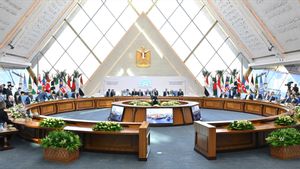JAKARTA Every day a teacher has to deal with various kinds of students with different characteristics. Therefore, the skills of managing class and classroom management need to be mastered by a teacher so that teaching and learning activities become conducive and productive.
Based on this, the Satkaara Sharing Teacher Community (KGSB) collaborated with the TeacherTalent, Career.mu, and Kampus Guru Cikal to host a Bajik Learning Space webinar: A Strategy to Manage Class and Emotion Management for Teachers in Classes. The webinar, which was held online on Saturday, June 15, 2024, presents the Coordinator of the Cikal Teacher Campus Unit Program, Neneng Nurbaeti.
The webinar was attended by more than 200 educators from all over Indonesia and Timor Leste. KGSB Program Coordinator, Riki M Iskandar, explained that the purpose of organizing this webinar is to equip teachers with skills and practical strategies in managing classes and controlling emotions effectively in order to create a conducive and productive learning environment.
By developing class and emotional management skills, teachers are expected to improve the quality of teaching and build more positive relationships with students. Not only has a good impact on teacher's emotional well-being, we hope teachers will be able to promote better student involvement, improve learning outcomes and create a harmonious classroom atmosphere," he said in a media statement received Wednesday, June 19.
In the webinar, the participants obtained material regarding the introduction of class management which includes effective definition and urgency of class management, as well as the impact of class management on the teaching and learning process.
In addition, strategies are also taught to manage classes such as practical techniques to maintain regularity and discipline in class, increase student involvement, and how to create an inclusive and supportive classroom environment. Also techniques for controlling and managing emotions for teachers in class, as well as strategies for teachers in dealing with stressful situations in class. This includes how to build positive relationships with students through effective and fouric communication.
The management of Teacher and Student Responsibility Class emphasized that classroom management is the responsibility of all class residents, not only teachers but also students. "Therefore, teachers and students need to have emotional skills in order to create a comfortable learning environment for all parties," he added.
Neneng further explained that students need to be facilitated to make class deals and get used to positive communication. This process is expected to encourage student ownership of the class.
To the teacher participants, Neneng provided briefing in the form of several social and emotional competencies that must be instilled in the students. Each is self awareness, self management, social awareness, relationship skills, and responsive decision-making.
SEE ALSO:
In teaching about self awareness, students are taught to identify their emotions and feelings, honestly see yourself, and recognize your strengths and weaknesses and work towards growing. While in self management strategy, students are taught how to set goals, time management, checklists and rubrics, as well as scaling of assessments and mutual agreements.
For social awareness competencies, students can be invited to recognize the concept of social awareness in a simple manner, which is a person's ability to consider the perspective of individuals, groups, or other communities, and apply that understanding in interaction with them. While the competence of relationship skills emphasizes the ability to treat others as we would like to be treated.
And finally, responsibility-making competencies are responsible decision-making models. To get this competence, students can be taught a checklist in the decision-making process and problem-solving. This checklist consists of problem identification, situation analysis, how to find solutions, ethical responsibility considerations and evaluation and contemplation.
The English, Chinese, Japanese, Arabic, and French versions are automatically generated by the AI. So there may still be inaccuracies in translating, please always see Indonesian as our main language. (system supported by DigitalSiber.id)

















